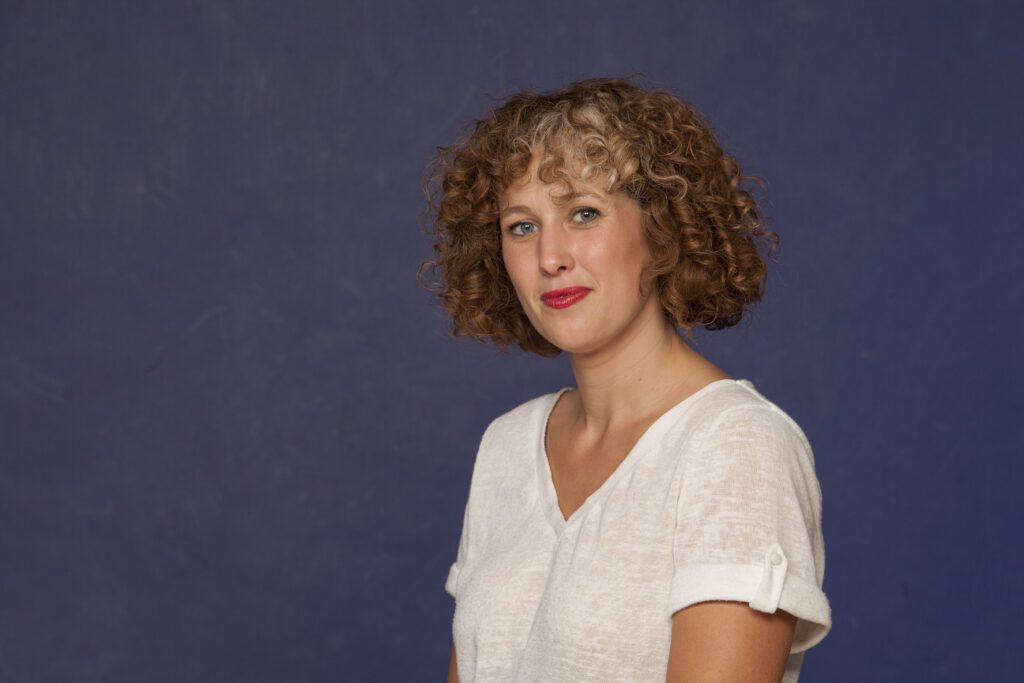The Faces Behind the Circular Fashion Partnership: Nin Castle


“Waste is only waste if it goes to waste.” Often (and easily) said words, but Nin Castle, Co-Founder, Lead of Recycling and Chief Project Officer at Reverse Resources, is translating these words into action. Ever since she was a student of Fashion Design with Business, Nin knew that even though she had a passion for fashion and what clothes means for your personal expression, there was something completely wrong with the fashion industry.
Castle owned Goodone, an award-winning sustainable fashion label, from 2006 to 2015, and she has been a part of the equally impressive Reverse Resources since 2017 – developing software solutions for major fashion brands, their garment suppliers and recycling partners to reuse production leftovers. The company’s long-term goal is to build a platform for virtual traceability of circulating resources through different lifecycles, a global database that supports scaling up various innovative circular business models for fashion industry.
In the recent years Reverse Resources has done a thorough research among major factories in China and Bangladesh, and its unique insight and technology means it is a perfect partner to help deliver the Circular Fashion Partnership in Bangladesh. To learn more, we asked Nin three quick questions:
What inspired you to want to make a difference in the apparel industry?
“I realised when I was studying back in 2001 that clothes, expression and identity were fascinating however that there was also something fundamentally wrong with the industry and how it worked. In reflection I was an influential student inspired by books such as Naomi Keins ‘No logo’, and Jospeh Stiglitz ´Globalisation and its discontents’. During the early 2000’s with the emerging trend of fast fashion, fashion was suddenly not only an aesthetic representation of culture and attitude but also the industry itself was a reflection of unethical and environmentally damaging global supply chains. The fantastic promise of globalisation to bring wealth and prosperity to developing countries seemed to be drastically failing and I’ve been working in this sector ever since I graduated.”
Can you tell us more about how Reverse Resources has helped to drive sustainability in the apparel industry?
“Reverse Resources is a systems thinking company, when mapping out future circular supply chains we saw that there was a massive gap, nobody was really looking into the issue of waste itself. There was no data on waste, brands and other organisations had no bench marks on waste, no access or control of the waste produced. What was traditionally waste, was about to become feedstock and resource for a new circular industry. We saw that the low hanging fruit was post industrial waste as this was the most easy to recycle and we have been busy organising waste streams and bringing down the market barriers to make life as easy as possible for recyclers so that they can be profitable and grow at the speed needed.”
How do you think the Circular Fashion Partnership can make an impact in Bangladesh?
“In my opinion Bangladesh has the most valuable textile waste of any country, their factories are famous for producing large volumes of cotton knit products, the most valuable and sought after waste in todays recycling market. Today though Bangladesh is the worlds largest exporter of textile scraps which represents a real system loss for the country. At the same time with scaling mechanical textile recyclers and emerging chemical cellulosic recyclers there is real potential for Bangladesh to position itself as a leader in circularity. By tracing the circulation and valorisation of waste within the country we can prove the positive economic and environmental impact of the Circular Economy, creating a blue print for other countries to follow.”